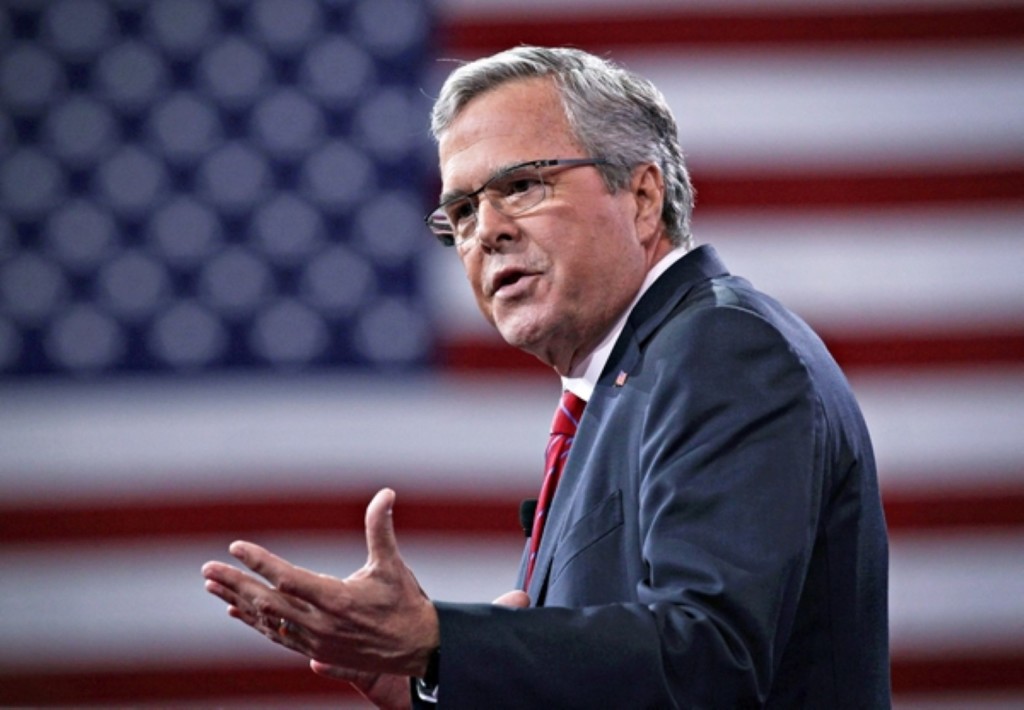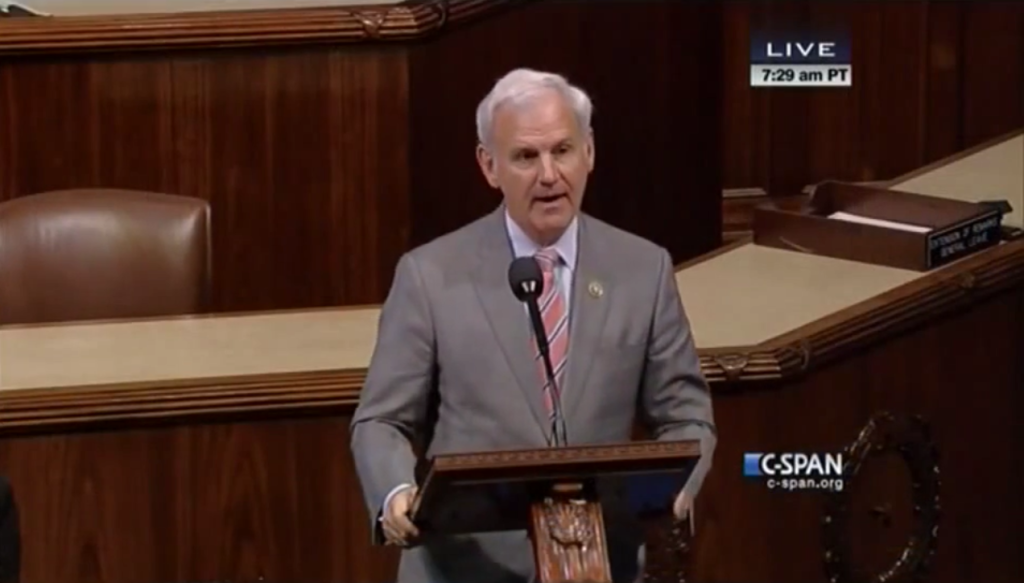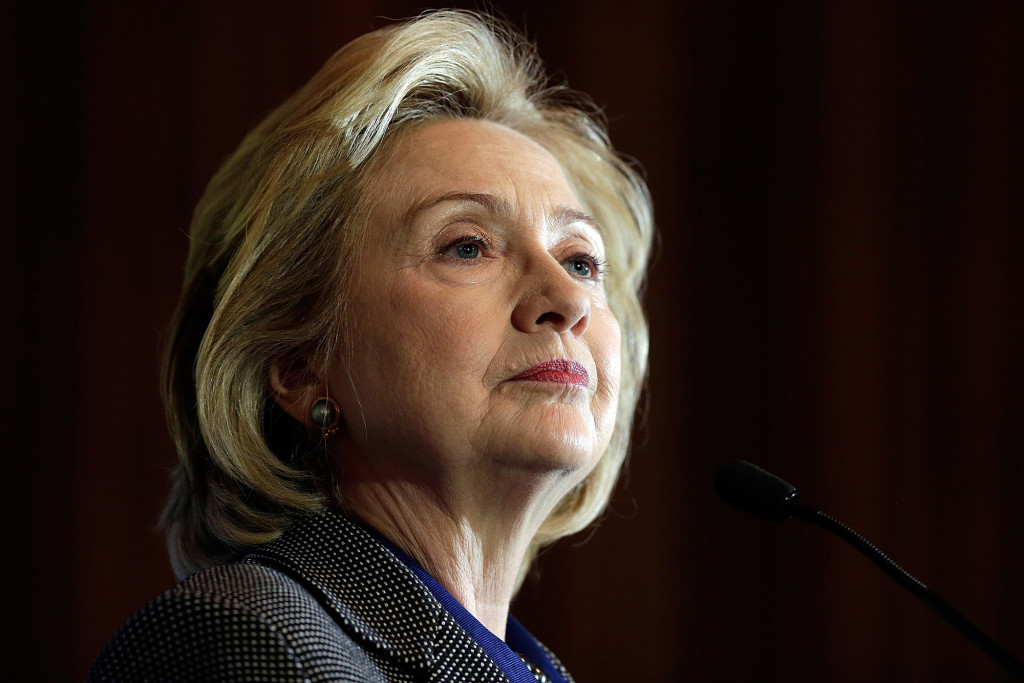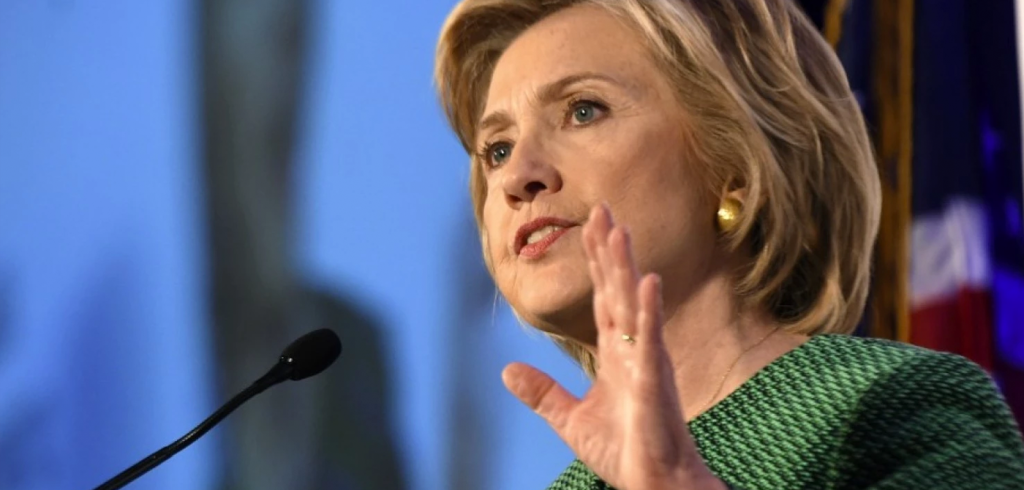Jeb Bush spends millions on TV but has yet to rise in GOP race

Jeb Bush and his allies are spending circles around his rivals for the Republican presidential nomination. Yet for all the money they’ve invested — $26 million on television ads alone — they’ve yet to see a substantial return. Having fallen from summer front-runner to autumn afterthought, the former Florida governor made deep spending cuts to his campaign operation in October. But he and his backers plowed ahead with a television blitz three times the size of anyone else’s, while putting a new strategic focus on New Hampshire. Some Bush allies suggested those efforts had to pay off with improved numbers in preference polls in November. Yet as December begins, Bush remains mired in single digits — including in New Hampshire — in a race that continues to be dominated by political novices, most notably billionaire real estate mogul Donald Trump. Bush’s most loyal supporters argue the advertising, mostly financed by an outside group known as a super PAC, has paid off by helping stabilize a campaign that was losing ground. The brother and son of former presidents is showcasing new endorsements, and his team continues to raise a steady stream of money. In November, Bush’s campaign collected at least $1 million, a tally by The Associated Press found. Top donors will head to Miami on Saturday for a campaign update, and ahead of that gathering Bush strategists are circulating a list of 300 contributors as a show of his staying power. But those same backers are also starting to acknowledge that time is growing short, with the leadoff Iowa caucuses now just two months away. “We’ve got to do better than expected in those first three states” of Iowa, New Hampshire and South Carolina, said Barry Wynn, one of Bush’s biggest South Carolina supporters and a member of his national finance team. Said Craig Duchossois, a devoted financial backer from Chicago, “I continue to be concerned.” The pro-Bush super PAC, called Right to Rise, has spent about $26 million on TV and radio commercials in the past 11 weeks, according to Kantar Media‘s CMAG advertising tracker. That’s about a quarter of the record-setting $103 million it raised in the first six months of the year. When Bush gathered his top donors in Houston in October at an event that featured former Presidents George H.W. Bush and George W. Bush, many suggested that the candidate’s poll numbers would improve by the end of November — once those ads had time to penetrate. That hasn’t happened. At the start of the ad campaign in mid-September, an ABC News/Washington Post poll found that about 8 percent of Republican and Republican-leaning registered voters nationally said they supported Bush. Two months later, and despite thousands of biographical ads that touted Bush as a proven leader, his numbers in that same poll were about the same: 6 percent. It’s the same story in New Hampshire, a state Bush has visited nearly weekly since November. He was the first choice of 9 percent of likely Republican primary voters in a poll conducted for WBUR in mid-September, and was at about 7 percent by the middle of November. Explanations vary depending on who is asked. Duchossois said the Bush team was too ambitious in thinking his poll numbers would be moving this soon. But he said Tuesday, “The next month is absolutely critical.” Bush spokesman Tim Miller said no one from the campaign predicted a big change by the end of November. Instead, he suggested this week, the turnaround will come in the new year. “I just think a lot of things are going to change in the race next year,” Miller said. “It’s a volatile field.” Officials at Right to Rise, the Bush super PAC, are taking an even longer view. The group has already reserved an additional $38 million in television advertising across the country over the next 15 weeks — as much as the next three biggest spenders combined. “Our investments are long-term and focused on helping Jeb achieve a general election victory in November 2016,” said Right to Rise spokesman Paul Lindsay. “We measure ourselves by that goal alone.” Bush and his supporters are making the case that, in the wake of the Nov. 13 attacks in Paris, voters will take another look his message of experience — which they hope will eventually overtake interest in outsider candidates such as Trump and retired neurosurgeon Ben Carson. “The good news is the numbers aren’t slipping, and to me, there’s been a vast improvement in the campaign,” said Fred Zeidman, a Houston-based donor. “He is truly showing his expertise in the issues that affect us all. Some of the folks who are ahead of him won’t stay there as voters get serious.” Perhaps the biggest question for Bush, regardless of how much money he and his allies spend on TV ads, is whether Zeidman’s prediction proves correct. Former House Majority Leader Eric Cantor, a key supporter, told Chicago donor Bill Kunkler and others on a recent national finance call that voters were angry and some even irrational. “Not that they are going to stay irrational. They are going to gravitate toward the most accomplished choice,” Kunkler recalls Cantor saying. “And we’ll see if he’s right.” Republished with permission of The Associated Press.
Bradley Byrne pushing bill to reduce “public housing abuse”

On Tuesday, Republican U.S. Rep. Bradley Byrne introduced a bill in the U.S. House to crack down on families living in public housing while earning more than the federally-mandated maximum income to do so. “There is far too much fraud and abuse within our nation’s welfare programs,” said Byrne. “That’s why I have introduced the Public Housing Accountability Act, which will help prevent over-income families from residing in taxpayer funded public housing. “Public housing is a critical resource for many of our nation’s poorest families, and we are doing them a disservice by allowing such blatant abuse of the system. It is time Congress gets serious about reforming our nation’s welfare programs to ensure they are both efficient and effective, and my bill is a step in the right direction,” said Byrne. Byrne’s bill – the Public Housing Accountability Act (H.R. 4133), now circulating in the House – would seek to increase accountability in the public housing sector by requiring an annual verification of each dweller’s income. Families would also incur a means test if their income changes by “an amount that is estimated to result in an increase of 10 percent or more in annual adjusted income.” The move comes after a report by a regional Inspector General of the Department of Housing and Urban Development, which found a rash of people earning more than the federal maximum living in publicly-subsidized dwellings. The report found 25,226 families who earned more than the $30,200 maximum for eligibility in Section 8 housing, named after a federal law governing publicly subsidized neighborhoods. One person living in Secton 8 housing in Mobile was discovered to have an income of more than $100,000, yet still receiving. Byrne reacted to that report when it came out earlier this year. “I wish I could say I was shocked, but I’m not,” said Byrne, a Fairhope Republican who has represented Alabama’s 1st Congressional District since 2013. “This is just another reason why we need to look at a total rethink and reform of all those programs because we are wasting taxpayer dollars, and we don’t have ’em to waste,” said Byrne. “We want to get people in it if they really need it, and then find the means to get out as quickly as we can so they can get a job and support themselves.” Byrne represents Alabama’s 1st Congressional District. He was first elected in 2012. Byrne, an attorney and graduated of University of Alabama’s law school, previously served in the Alabama Senate in Montgomery from 2002 until 2007. Before that, he served on the Alabama State Board of Education as a Democrat.
Alabama Power customers set to see rate decreases, despite new EPA regulations

Though EPA regulations are closing in on state-backed energy firm Alabama Power, ratepayers throughout the state are nonetheless likely to see decreases in their energy bills in 2016. The firm’s newly-diversified portfolio of energy sources, along with lower prices in the coal and natural gas markets, led the firm to cut rates by 2 percent throughout 2016. “There’s no question – costs related to federal environmental mandates and other governmental regulations continue to be a concern for us,” said Nick Sellers, Alabama Power’s vice president for Regulatory and Corporate Affairs on Tuesday. “Regulatory costs related to coal-fired generation, in particular, are going to continue to rise as more environmental rules come in to play,” added Sellers. “For now, we’re pleased that our fuel flexibility is helping blunt the negative impact of these federal mandates.” The enactment of new federal environmental rules, meanwhile, have caused the shuttering of three coal power plants run by, according to a release from the utility. Alabama Power says new rules enforced by the Environmental Protection Agency necessitated the closure of Plant Gorgas Units 6-7 in Walker County, as well as Plant Barry in Mobile County, where “Unit 3 has produced its last megawatt of power.” The units, which were actively producing power for customers as recently as early this winter, were effective at providing power for Alabamians. “From a reliability standpoint, Gorgas 6 and 7 were top of the line,” said Billy McKay, an operations team leader at Gorgas. “They were really great units.” The Walker County facility that housed Gorgas 6 and 7 now serves as temporary storage, the cavernous plant now essentially a holding pen for equipment and supplies. While the plants were producing plenty of power, they lacked the full suite of environmental controls that coal-fired power plants must now have to meet the latest federal regulations, says Alabama Power. With the deadline looming to add costly technology or close the units, the company chose the latter. The company said that while they have spent some $4 billion in the last dozen year complying with EPA regulations, including $1 billion in the last year ahead of the ramp-up of the Obama administration’s Clean Power Plan initiative, the numbers for keeping their plants open just don’t add up. Other facilities, like at Plant Barry and Plant Gadsden, have stopped using coal and switched to natural gas. The number of coal-fired units will ultimately fall from 23 to 10 due to new environmental rules. Alabama Power’s vice president of Environmental Affairs Matt Bowden says the outright closures above may not be the last ratepayers see. “These regulations are forcing us to make costly changes in how we generate electricity for our customers,” said Bowden. “And there are more regulations coming.”
From Homeland to hair: Hillary Clinton emails peek into the personal

The latest release of Hillary Clinton‘s private emails show her, as secretary of state, dealing with the complicated politics of the Arab Spring, fending off questions about her role in the deadly 2012 Benghazi attacks and attempting to navigate an intensifying conflict between Israel and the Palestinians. But they also give a glimpse into the private side of one of the world’s most public people. Clinton’s notes show her searching for videos on how to do a “fishtail bun” hairstyle and struggling to locate Showtime on her television. (She wanted to watch the CIA-centered drama “Homeland.”) She schedules – and reschedules – flights, meals and hairstyling appointments. And as she flies around the globe – logging 956,733 miles over her tenure – she tries to keep track of the time zone. The roughly 7,800 pages of emails released Monday were part of a court-ordered disclosure of correspondence sent from the private server Clinton used while she was secretary of state. Clinton, now the front-runner for the 2016 Democratic presidential nomination, has faced questions about whether her unusual email setup was sufficient to ensure the security of government information and retention of records. Included in the most recent batch was an email that Intelligence Community Inspector General I. Charles McCullough III and State Department Inspector General Steve Linick deemed classified in July. At least two Senate committees are still investigating Clinton’s email arrangement and seeking the release of correspondence from her top aides. The FBI is also investigating the security of Clinton’s private email setup. Two-thirds of Clinton’s 30,000 work-related emails are now at least partially in the public eye – minus numerous redactions by the State Department. Here’s a closer look at some of the messages that churned through Clinton’s very busy in-box in the batch released Monday: — HEALTH POLITICS Get-well-soon notes poured in from across the globe after a stomach virus that Clinton picked up in 2012 became a serious condition that kept her out of the office – and off the congressional witness stand. After a dehydrated Clinton fainted and sustained a concussion – a condition she frequently called her “cracked head” in messages – she was forced to postpone her testimony before the House Foreign Affairs Committee about the deadly Benghazi attacks. Hollywood mogul Harvey Weinstein emailed her aide, Capricia Marshall, offering to send Clinton copies of any movies she wanted to watch while recuperating. Dorothea Hurley, the wife of rock star Jon Bon Jovi, checked in with Clinton’s daughter, Chelsea, to say that they were “sending you all a big hug.” Chelsea forwarded the message to her mother. Her health quickly became a political issue, with Republicans questioning her fitness should she ever run for president. Her staff moved quickly to tamp down the speculation. Top aide Philippe Reines told Clinton he’d reached out to former Tennessee Sen. Bill Frist, a heart transplant surgeon, and the NFL commissioner to enlist their support pushing back on right-wing commentators. “Just not letting these comments stand, no matter who says them,” Reines said. Frist was happy to help, according to the documents. “I love her and respect her and I can help. Not sure how exactly but I know I can help. I will Keep all Confidential,” he wrote. — 2012 ELECTIONS Although Clinton wasn’t on the ticket in 2012, she and her supporters followed the race closely – and had plenty to say. In a January 2012 note, during the heat of the Florida GOP primary, Clinton refers to Mitt Romney as “Mittens” and Newt Gingrich as “Grinch.” “If Mittens can’t beat Grinch in Florida, there will be pressure on state Republican parties to reopen or liberalize ballot access,” she writes to confidant Sid Blumenthal. — BENGHAZI At least a few of the messages have come back to haunt Clinton during her presidential bid. Shortly before 9 p.m. on Sept. 11, 2012, Clinton sent an email asking her daughter to call her at her office about the attack on the U.S. consulate in Benghazi, Libya. The email was addressed to an account under the name “Diane Reynolds,” an alias Chelsea Clinton used for personal messages. “Two of our officers were killed in Benghazi by an al-Qaida-like group: The Ambassador, whom I handpicked, and a young communications officer on temporary duty w(ith) a wife and two young children,” Hillary Clinton later wrote to her daughter. “Very hard day and I fear more of the same tomorrow.” In October, that email was trumpeted by Republicans on the House Benghazi committee as evidence that Clinton knew very quickly the attack on the consulate was the work of Islamic terrorists, not a spontaneous street protest triggered by the release of a video considered an insult to the Prophet Mohammed. In a later television interview, then-United Nations Ambassador Susan Rice suggested the video, which did spark anti-American protests that day in several Muslim countries, was the primary motivation for the attack. Republicans have suggested the Obama administration downplayed the terror threat to avoid stoking public safety concerns in the weeks leading up to the 2012 presidential election. Some of the messages show that Clinton worried about how her own remarks after the attacks would later be perceived. In a September 2012 message, aide Jake Sullivan compiled all her statements and assured Clinton that she was “careful” and “never said ‘spontaneous’ or characterized the motives.” “The way you treated the video in the Libya context was to say that some sought to (asterisk)justify(asterisk) the attack on that basis,” he wrote. — KEEPING THE TEAM TOGETHER Clinton maintained her ties with the Democratic Party donors who supported her past campaigns and could help her in the future. In November 2012, Samuel Kaplan, a Minneapolis lawyer and major Democratic donor who was appointed U.S. ambassador to Morocco, secured a private meeting with Clinton to discuss how he and his wife “might hope to be allied” with her in the future. Former Clinton aide Lauren Jiloty wrote to Clinton in 2012 to say she had
Hillary Clinton to speak at Montgomery bus boycott anniversary event

Democratic presidential candidate Hillary Clinton is traveling to Alabama to mark the 60th anniversary of the Montgomery Bus Boycott. Clinton will speak Tuesday morning at the Montgomery, Alabama, church pastored by the Rev. Martin Luther King Jr. during the boycott. Her speech falls on the anniversary of Rosa Parks‘ Dec. 1, 1955 arrest for refusing to give her bus seat to a white passenger. Her arrest sparked the 381-day boycott of Montgomery buses by blacks to protest segregated seating. In stops in the South, the Democratic presidential front-runner has been working to solidify her advantage among African-American voters. Black voters make up a major portion of the Democratic primary electorate in Southern states holding early primaries in 2016. Republished with permission of The Associated Press.


